Switzerland is ‘European but independent’ says top diplomat
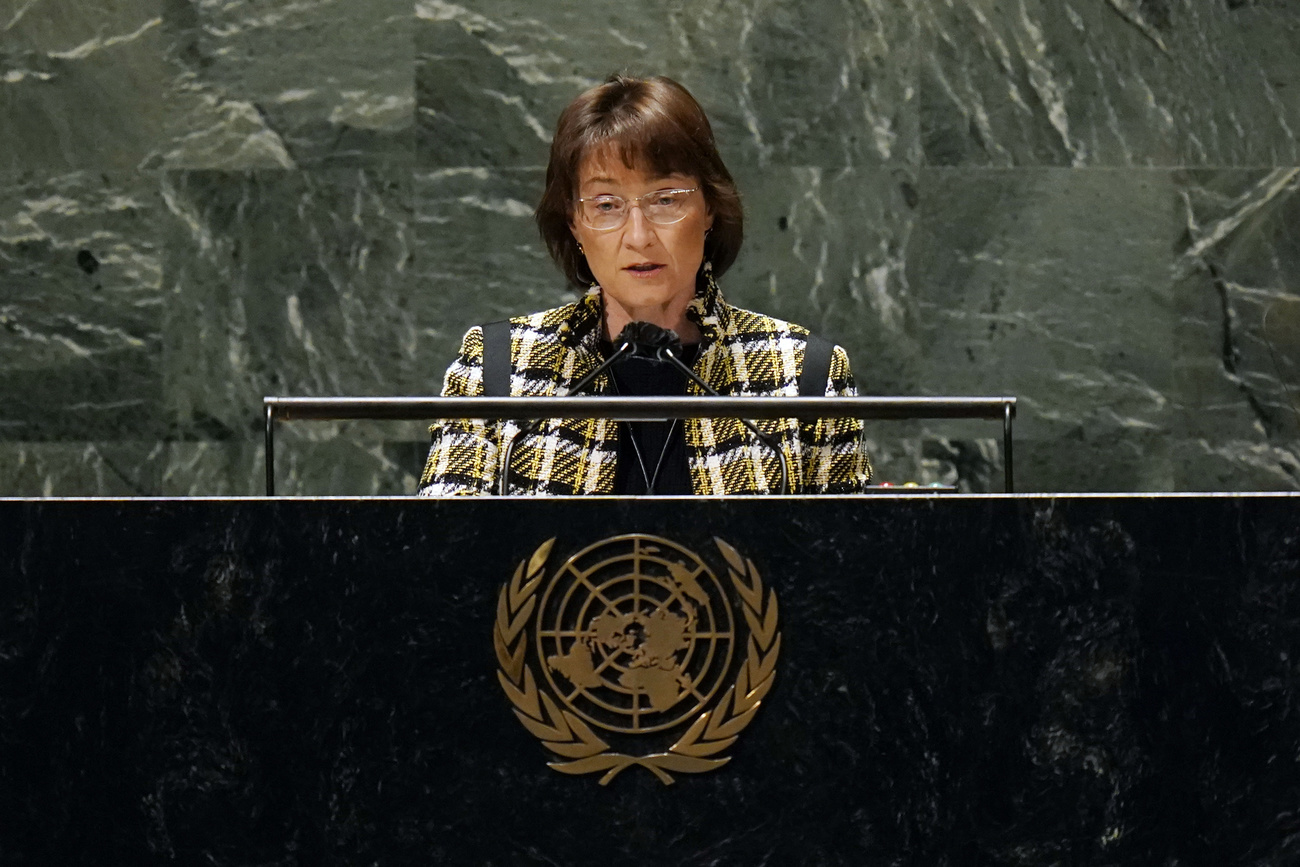
Switzerland has joined European sanctions on Russia after its invasion of Ukraine, prompting some to say the Alpine country has abandoned its neutrality. Pascale Baeriswyl, head of Switzerland’s permanent mission to the United Nations in New York, told swissinfo.ch she does not agree.
swissinfo.ch:Switzerland’s decision to adopt sanctions against Russia has been interpreted abroad as abandoning its neutrality. Is that a misunderstanding that you are having to explain?
Pascale Baeriswyl: It’s not surprising that knowledge about Swiss neutrality is limited. We regularly have to explain our neutrality, which is different, for example, from the neutrality of the International Red Cross. But yes, in the current, very tense international context we have to do that more often that in the past.
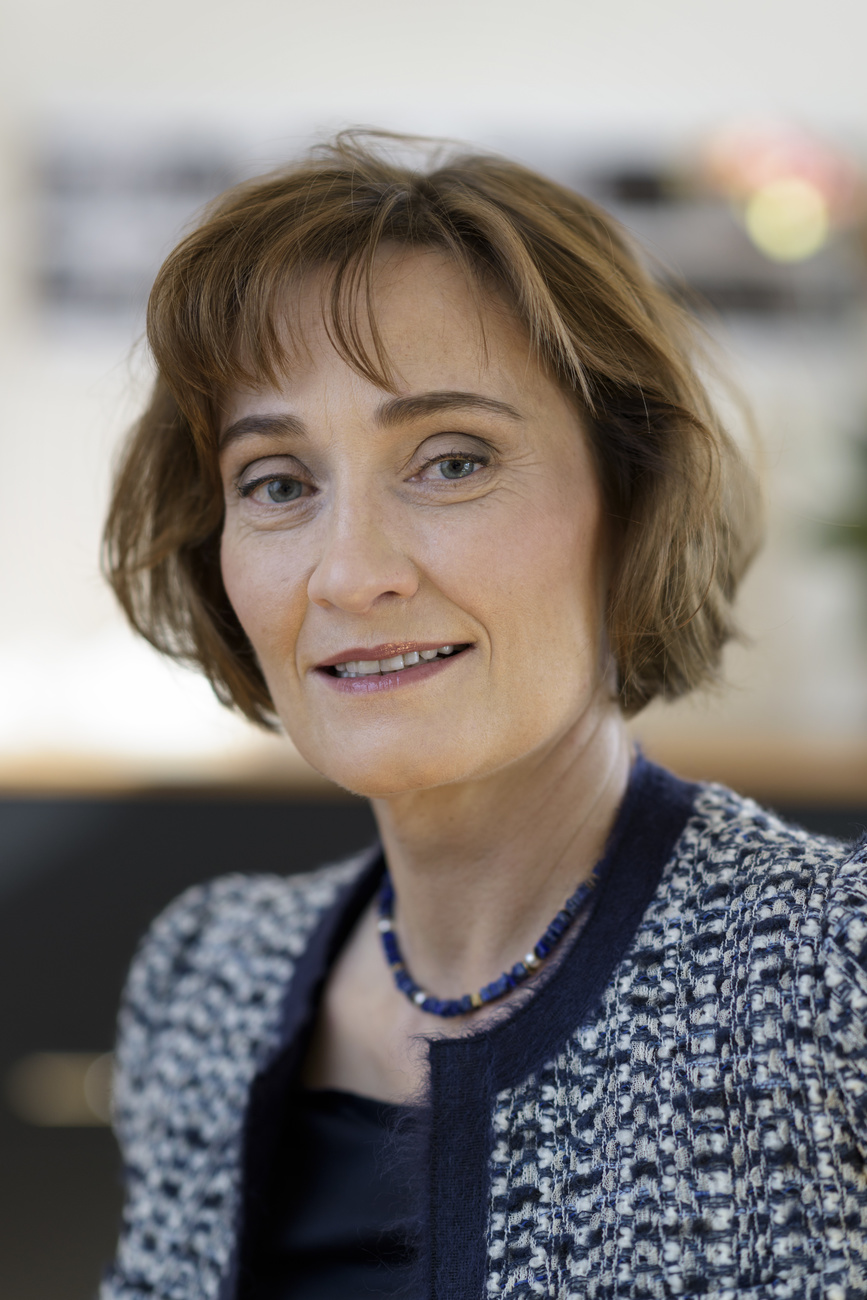
SWI: But clearly Switzerland is no longer perceived as neutral abroad. Russia has put it on a list of “hostile countries.” That must give you food for thought – after all, the purpose of choosing a policy of neutrality is that people believe Switzerland is neutral.
P.B.: Swiss neutrality has not changed at all, and I don’t accept that we are now no longer perceived as neutral. Switzerland’s stance on these severe violations of the UN Charter have met positive reactions here at the UN in New York, and not only from western states. So I am confident that Switzerland is still perceived as a credible and neutral bridge-builder. That is what we work towards every day.
SWI: If Switzerland adheres closely to the European Union – as it has with the sanctions – will it be perceived internationally as being a satellite member instead of a neutral player?
P.B.: Switzerland is geographically, culturally and ideologically in the heart of Europe. For more than 30 years, it has regularly adopted EU sanction regimes.
Here in New York, Switzerland is also officially part of the western UN group. It does not participate in joint EU statements and is often active as a bridge-builder, sometimes between the EU and groups of developing countries.
Here our nuanced stance — “European and supportive but independent” – is mostly understood. Often that is an advantage, but sometimes we have less influence than the member states of the European Union.
SWI: Is not being an EU member still a “trump card” when it comes to good offices compared with rivals like Vienna, Helsinki or Stockholm?
P.B.: At the moment, there are so many conflicts in the world that all hands have to be on deck. There is no point in rivalry. Usually, the profile of one mediator fits better in a particular context than another. Often different mediation services are combined: one country brings its know-how regarding ceasefire agreements while another helps to organize free and fair elections.
The fact that Norway and Switzerland are not members of the EU often, though not always, makes us desirable locations. Switzerland’s unique selling point is international Geneva — the European headquarters of the UN and the humanitarian and innovative environment that accompanies it.
SWI: Swiss neutrality is perceived abroad as a fig-leaf to hide our economic self-interest. How can it serve the country’s role as a mediator?
P.B.: Switzerland’s reputation can be put at risk when Swiss business and other actors don’t stick to the rules. This is the same for other countries. Here at the UN, Swiss neutrality is not perceived as a fig-leaf – quite the reverse, we have a lot of credibility.
SWI: But after adopting sanctions, is Switzerland still in the running as a mediator in the Ukraine war?
P.B.: For understandable reasons, I can’t say anything concrete on this. It is important that the war ends as quickly as possible because the consequences are dramatic for the Ukrainian population, for the country, for the region and for the world. Whoever can help bring it to an end is welcome as a mediator.
SWI: After mediation successes in Nepal, Mozambique and other somewhat remote places, the impression is that Switzerland is urgently seeking its first meaty international mediation mandate. Is this about prestige?
P.B.: Switzerland’s good offices consist of three elements: hosting international meetings, protective power mandates and concrete mediation.
We have recently hosted many UN conferences, including for example on Syria. For decades we have given valuable service as a protective power, for example for Russia or the US. As far as Swiss mediation is concerned, we can say that it was a Swiss woman, Heidi Tagliavini, who negotiated the Minsk Agreement. And it was a Swiss man, Toni Frisch, who over many years mediated the exchange of prisoners between the Ukrainian government and pro-Russian separatists. This saved many lives. In Nepal and Mozambique, Switzerland has been active since the 1960s as a partner in development cooperation. So we also have an interest in preventing these countries from sinking into brutal conflicts again.
To cut a long story short: we are justifiably proud of our good offices. That is not really about prestige, but about our supportive contribution to the global community. This gives us credit which we need as a country that depends on a rules-based order. So it is fundamentally in our interest.
SWI: Sweden has supplied Ukraine with weapons, which means saying goodbye to neutrality. Germany too has announced a fundamental shift in its foreign policy and is bolstering its military. Does Switzerland need to change course?
P.B.: Sweden decided back in 2009 to give up its neutrality and has since then described itself as “non-aligned.” That has to do with its geographical position, which is more exposed. The Russian threat has been apparent for years, even if we all hoped that aggression on this scale would never happen. Switzerland must be ready for crises, as the pandemic showed. But I see no reason at the moment to change our tried and trusted foreign policy principles.
SWI: How will Swiss neutrality look in future?
P.B.: Nothing has fundamentally changed about Swiss neutrality. Since the annexation of the Crimea eight years ago, neutrality has been applied in the Russian-Ukrainian context. Neutrality policy has become more flexible and is therefore interpreted in a variety of ways. The Swiss people view the “solidarity” aspect of the neutrality definition as the most important. This deeply rooted humanitarian tradition has put the Swiss population to the test again in recent days. For others, Switzerland’s restraint when it comes to so-called “foreign dealings” is central in shaping neutrality policy. We also try to take this aspect into account by being often working quietly on compromises behind the scenes. But when it comes to violations of international law, Switzerland isn’t neutral. We always address these. As a small country that is one of the most globalised in the world, it is an issue of existential importance that international rules are respected – both in economic policy and security policy. As long as we remain consistent, we are credible. Neutrality policy is, in the end, a question of credibility.
SWI: There is talk of a new era and possibly a new Cold War. Western states are closing ranks. How will Switzerland position itself?
P.B.: As a historian, I think that these epochs can only be grasped with a certain distance. History is always in flux — in my opinion, it is comprised of movements more than of watershed moments, even if we must always be ready to react quickly to concrete events like war or catastrophe.
In our diplomatic work, we must try to steer this flow according to our interests and values. In the long term, the international community must strengthen trust, rebalance major inequalities, counter disinformation, restore security regimes and – above all –achieve the sustainability goals.
A journalist once called me a Cassandra after I drew attention to major global risks, and that annoyed me at the time because this is not about Greek mythology. The risk factors that are currently emerging have featured in the annual Global Risk Report by the Davos World Economic Forum for more than ten years. It is worth taking these very seriously! Otherwise we will leave our children a difficult future.
My hope is that as a result of the severe current crises – the pandemic, wars and hunger – the world community might pull together so that we can master global challenges here at the UN.
Translated from German by Catherine Hickley
Pascale Baeriswyl
Pascale Baeriswyl was born in Bern in 1968. She studied law, history, French literature and language in Basel, Geneva and Paris and graduated with degrees in law and philology. After working as a researcher for the Swiss National Fund and as a judge at the Basel civil law court, she entered the diplomatic service in the year 2000.
After tours of duty in Vietnam, Brussels and New York, Pascale Baeriswyl returned to Switzerland in 2013 as deputy director of the Directorate of International Law. From 2016, she was a state secretary in the Federal Department of Foreign Affairs and director of the political directorate. In 2019, the government appointed her as head of Switzerland’s Permanent Mission to the United Nations. She has held this post since June 2020.
Source: Federal Department of Foreign Affairs

In compliance with the JTI standards
More: SWI swissinfo.ch certified by the Journalism Trust Initiative

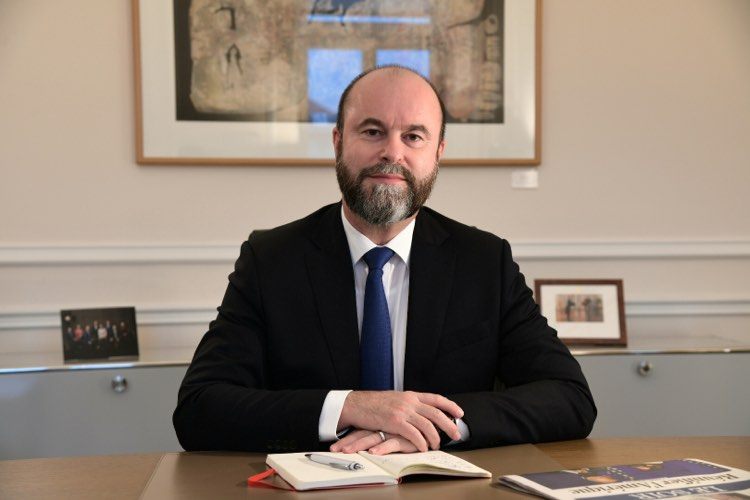
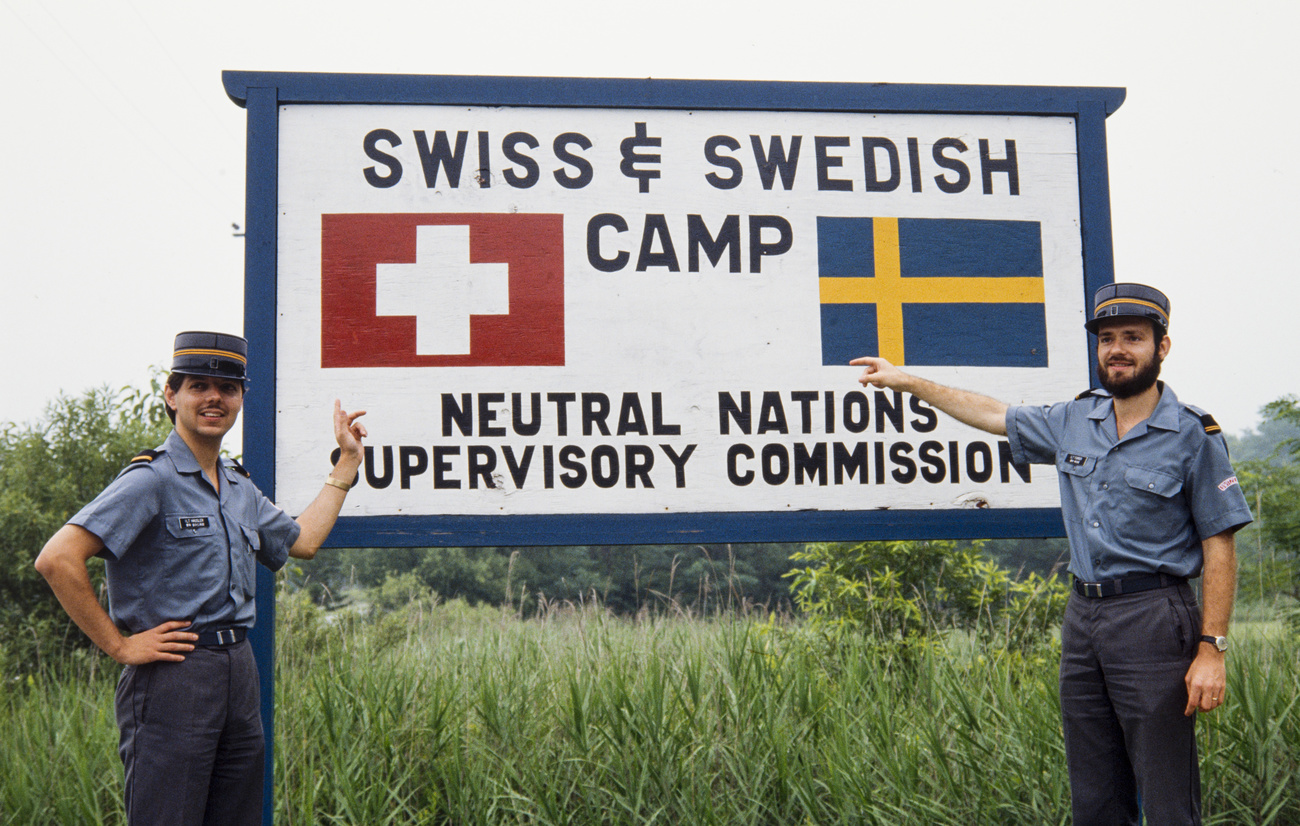
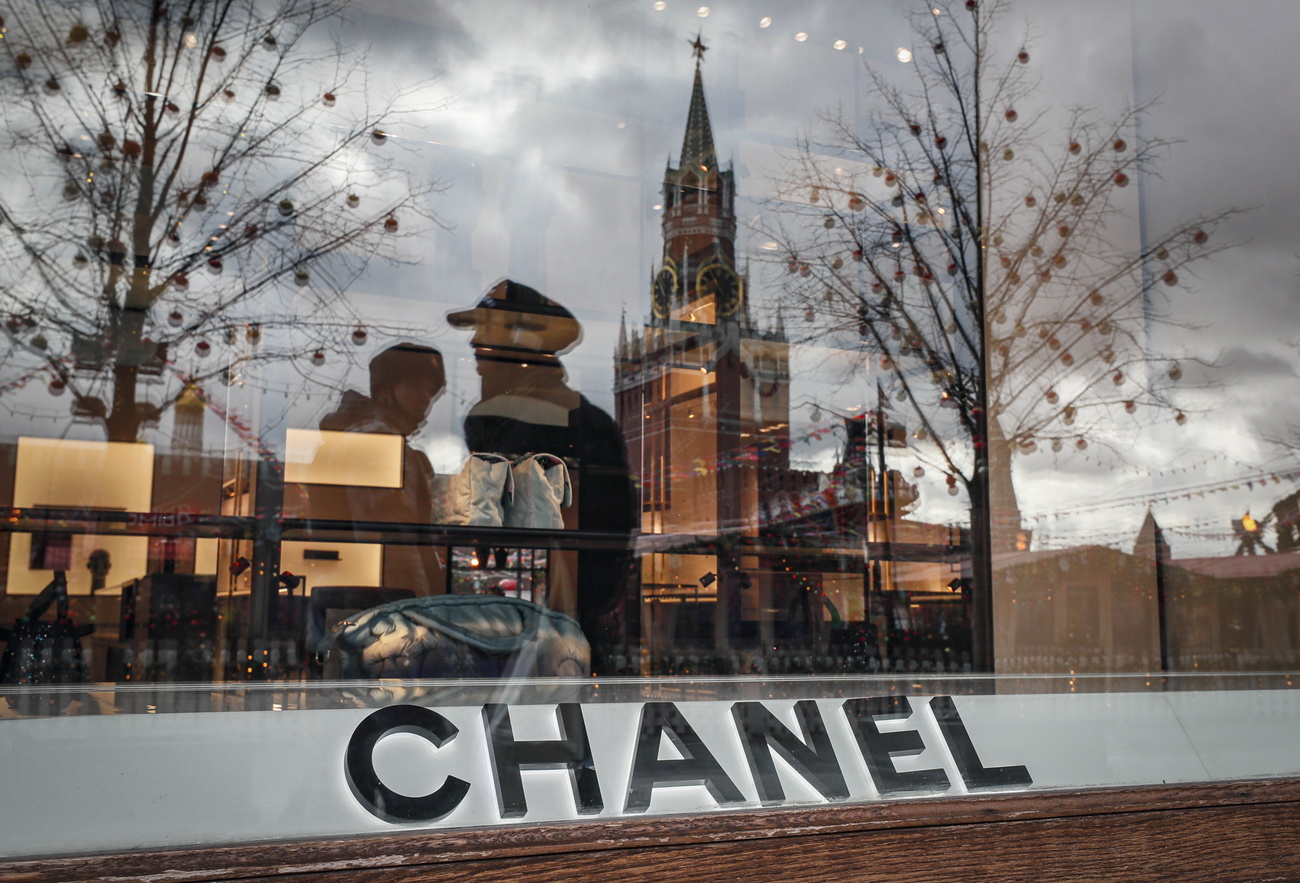
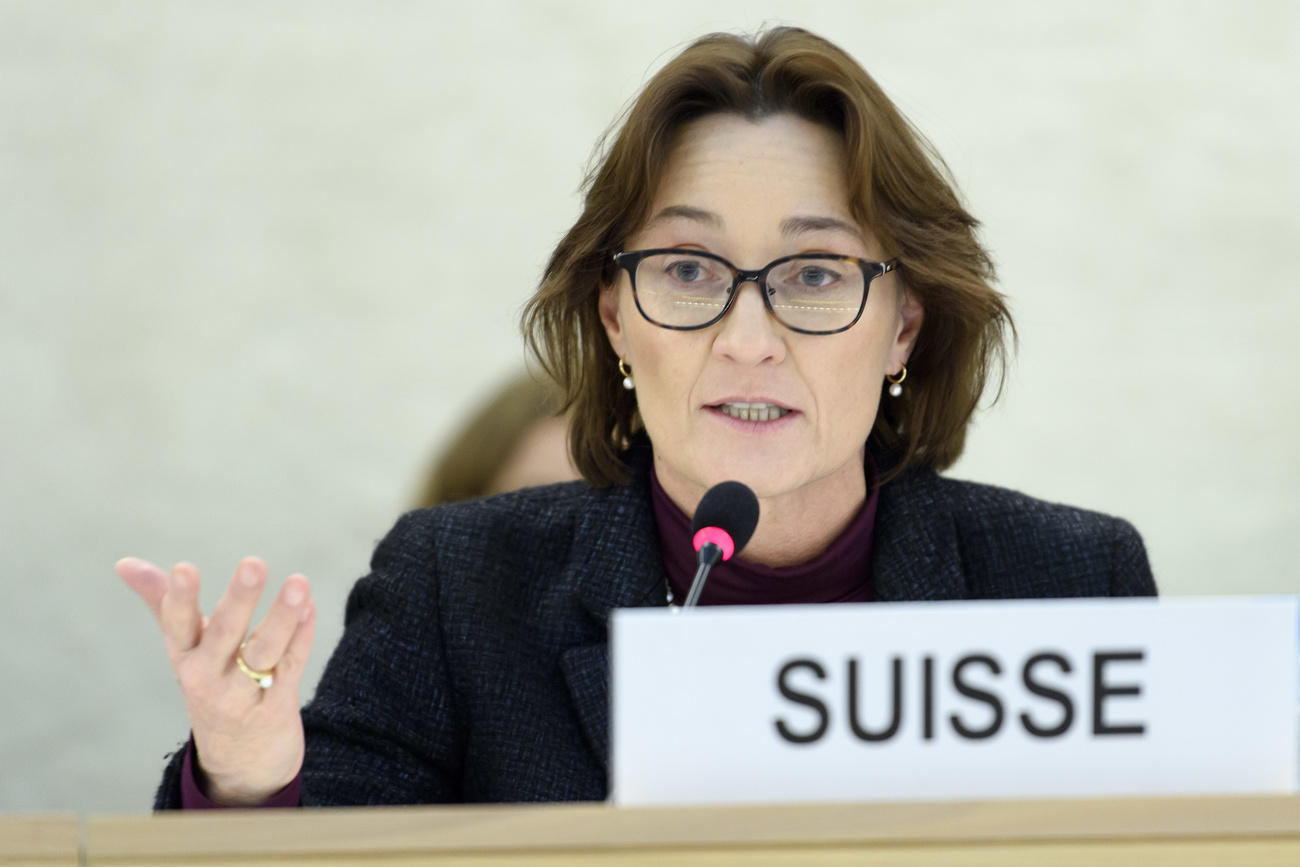
You can find an overview of ongoing debates with our journalists here. Please join us!
If you want to start a conversation about a topic raised in this article or want to report factual errors, email us at english@swissinfo.ch.